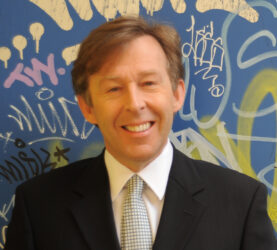Western University music student Chelsie Boccognelle feels being forced to unexpectedly speak in class and answer questions negatively impacts many students suffering from anxiety disorders.
Boccognelle posted a TikTok on the subject and it gathered more than 560,000 likes and 1.6 million views.
“I think that teachers need to just have a bit more understanding and respect for their students and their personal feelings and circumstances,” she said.
The majority of more than 16,000 comments on the post agreed with her message, and many shared their own similar, anxiety-inducing experiences.
“I think that seeing all the positive comments really made me realize how important it is to have teachers understand their students and respect their boundaries when it comes to speaking in front of classes,” Boccognelle said.
She is very confident in public speaking and enjoys it, but still struggles with anxiety and embarrassment when she is unexpectedly called upon. She said teachers should understand the “element of surprise” makes it much more difficult.
Anxiety is something nearly everyone deals with at times, but for those who struggle with psychological disorders, it can be debilitating.
Dr. Mark Berber, a psychiatrist at Markham Stouffville Hospital, said Social Anxiety Disorder (SAD) can be scary for those who suffer from it.
“It’s one of many anxiety disorders, characterized by this fear of doing something embarrassing in front of others,” he said. “Also, because of that fear, they avoid and doing things in front of others and if they do that task in front of others, they do it with great discomfort.”

Berber said a little bit of anxiety in social or occupational situations is normal, but some cases are much more severe. He also said SAD most often sets in before adulthood and very often goes undiagnosed and untreated.
Treatments include talk therapy and, in some cases, medication, he said.
“If you notice your functioning starts to be impaired because of social fear, that’s when we start thinking that this is a psychiatric, psychological or emotional condition that needs professional assistance,” Berber said.
He said teachers should not force students to speak in class.
“I think it’s incumbent on teachers and professors to know about social anxiety disorder and detect when their students aren’t comfortable,” Berber said. “The first step to overcoming any anxiety disorder, like any medical condition is educating yourself about the condition.”
He recommends researching about the condition to understand its effects and possible coping mechanisms.
He recommends anyone struggling with milder performance or social anxiety to try to think calmly and rationally before facing their fears head-on.
“That works because the person then realizes it wasn’t so bad. They think, ‘I got up and gave the talk and the world didn’t come crashing down,'” Berber said. “I think when you see a student suffering or struggling in a classroom or a presentational setting, it’s time for the teacher or professor to back off and to have a private conversation with that student.”
Sheridan College student Jessica Singh said she thinks teachers should rely on students coming forward on their own.
“A piece of advice I would give teachers and professors is to allow students the opportunity to raise their hands instead of just calling on them, or having them go into smaller groups and listening to their answers,” Singh said.
